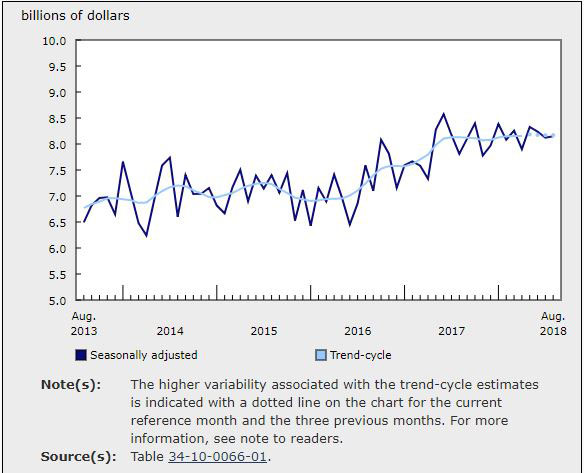Innovation Takes Culture, Not Only Books: Part 1

April 18 2016
Innovation. It’s a magical word. It conjures up images of patentable products that customers clamour for and that result in untold revenue growth, of services that enthrall customers and engenders undying loyalty to your company, of operational efficiencies that generate untold millions in productivity improvements and profitability. In other words, nirvana.
Much has been written and discussed regarding innovation for distribution channels, and that “distributors need to innovate to survive.”
In fact, did you know that according to Amazon there are 73,933 business books related to “innovation”? Unfortunately, it is not a new subject.
And with so many books you would think just reading could provide company executives with the answer to their innovation challenges.
Distributors are innovators
The reality is that many distributors are innovators and continue to innovate… for their customers, suppliers and themselves. In many cases, the original innovator within a distributor, manufacturer or manufacturer’s rep was the founder. They found a need (perhaps an unserved market), took a risk, and invested in a business.
Companies have a continual need to innovate. Sometimes it is incrementally, sometimes a major new product / service, sometimes to support a customer’s needs (or a market niche).
And then there are the “ah ha” moments where someone has an epiphany, new products or services are developed and new revenue streams are developed.
Which is more frequent?
Culture drives innovation
Before highlighting potential approaches to becoming more innovative or to addressing organizational challenges, it is important to emphasize a key tenet of innovation: the culture of your company and the personality of the people within your company are the determinants of how innovative your company either is or can be.
Innovation cannot be mandated. Nor can it be structured as a process. It needs to be inherent in your organization and cultivated in an open, safe environment where idea generation and communication is encouraged and where change is desired, expected and acted on. The organization must be decisive, seek to serve customers (internal and external, upstream and downstream) by soliciting feedback, be willing to resource new initiatives, analyze performance and measure activities to determine if defined “success” is achieved. Once achieved, the success should be communicated, recognized and ideally celebrated.
And there is one other foundational criterion… a willingness to take risks. Sometimes it is “bet the farm” types of decisions, other times it is “let’s take a chance.”
If you have this type of culture, honestly, then you are ahead of 98% of companies.
If not, it could be a senior management issue, a reluctance of middle management to buy in to initiatives, or it could be your hiring process.
It all starts with people and it takes communication
Innovation takes intellectual curiosity. People need to want to explore change, to find a “better / different” approach to addressing an opportunity or issue.
People within your company need attributes relating to
• risk taking
• initiative
• creativity
• resourcefulness
• attitude
Moe Glenner, president of Entredex, integrates these into exercises to calculate an Innovator’s Predictive Index that helps assess company management and key new hires. Moe is the author of “Selfish Altruism: Managing and Executing Successful Change Initiatives” and “Plus Change: Genesis of Innovation.”
Once people are identified as being “intellectually curious,” they then need to expand their frame of reference to be exposed to ideas and tools from others within the industry, from complementary and non-complementary industries where they can ask, “How could that work for me?”
Throughout my career I’ve had exposure to over 60 different industries. One thing I’ve learned is that many companies have similar issues, albeit expressed slightly differently; they use different terminology and have industry specific tools that can be expanded, or adapted, to your industry.
Once you view an issue as industry agnostic, different ideas can be explored and developed. And to get through the naysayers within your organization, use the 5 Whys iterative approach to reach the root case, and perhaps you will get to the “true” reason.
In Part 2 of this article: four ways to expand your frame of reference and generate innovative new ideas.
David Gordon is President of Channel Marketing Group. Channel Marketing Group develops market share and growth strategies for manufacturers and distributors and develops market research. CMG’s specialty is the electrical industry. He also authors an electrical industry blog, www.electricaltrends.com. He can be reached at 919-488-8635 or dgordon@channelmkt.com.
More in CEW by David Gordon:
Innovation Takes Culture, Not Only Books: Part 2
Selling Lighting or Selling Data?
Is it Time to Hit the Reset Button?
Boosting Performance at Your Webstore
Amazon Upgrades from Supply to Business
Evolving the Role of Marketing Within Your Distributorship
Strategies in Light Observations: Distributor LED Opportunities
Are You Ready To Sell LEDs Differently?
16 Distribution Industry Trends for 2016
Lighting the Way to Demand Creation
Converting Emails Into Sales Through Thoughtful Communications
Learning from Amazon and Generating Ideas
Turning Your Staff into a Competitive Advantage
Sales and Marketing – How Can Joint Sales Calls Become More Effective
Creating Demand to Drive Profitable Growth
Is Your Company a Kool-Aid Drinker?
What Manufacturers (and Their Reps) Don’t Know About Distributor Joint Sales Calls











